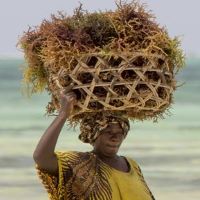

AquaInvest Platform
Authors
Tags
- Climate Change Adaptation (2)
- Seaweed farming (4)
- Rural Livelihoods (3)
- Climate Resilience (1)
- Mariculture (10)
- Digital Agriculture (1)
- Food Security (3)
- Region - Latin America & Caribbean (1)
- Digital Technology & Innovation (1)
- Seaweed (10)
- Fishery (12)
- Blue Economy (12)
- agribusiness policy (1)
- Agribusiness (9)
- Climate Change (2)
- Jobs (1)
- Environment (2)
- Agriculture (7)
- Aquaculture (17)
Blogs
Aquaculture Certification: Setting the Standards for Farmed Seafood
Aquaculture is the food production sector with the fastest annual growth nowadays, and its production represents more than 50% of global fish production intended for human consumption. Considering the increased
Aquaculture Certification: Setting the Standards for Farmed Seafood
Aquaculture is the food production sector with the fastest annual growth nowadays, and its production represents more than 50% of global fish production intended for human consumption. Considering the increased
Aquaculture Certification: Setting the Standards for Farmed Seafood
Aquaculture is the food production sector with the fastest annual growth nowadays, and its production represents more than 50% of global fish production intended for human consumption. Considering the increased
World Bank Guidelines for Sustainable Aquabusiness Development
The webinar provided an overview of the Guidelines for Sustainable Aquabusiness Development, which are being developed by Word Bank's Aquabusiness Investment Advisory Platform. The Platform is supported by PROBLUE and
World Bank AquaInvest Platform: sharing knowledge, tools and best practices towards sustainable and responsible aquaculture investment
The objective of the World Bank Group AquaInvest Platform is to share knowledge, tools, and best aquaculture practices among practitioners, policymakers, innovators, researchers, and experts, and to provide periodic updates
The GEF to expand ocean support under new high seas treaty
The GEF to expand ocean support under new high seas treaty “The Global Environment Facility is honored to serve this important new convention. We are ready to continue and intensify
8 digital technologies disrupting aquaculture
8 digital technologies disrupting aquaculture By Aidan Connolly Aquaculture, also known as aqua farming, is believed to have first begun around 4,000 years ago in China and is now the fastest growing animal food
Why do we need a blue transformation?
Visit the FAO Page: Whether they come from inland sources like rivers and lakes or the ocean, fish and other aquatic animals play a crucial role in global food security
The potential of the Blue Economy
Author: BJÖRN GILLSÄTER While working in the Galápagos Islands in the late 1980s, I saw the interplay between the many interests on the islands: local fishermen taking advantage of the rich
An opportunity to reinvent our food system and unlock human capital too
Authors: ROBERT JONES I PAWAN PATIL What if we had the chance to reinvent the world’s food system and make local, more sustainable, nourishing and diverse food the new norm rather than the